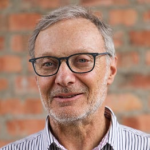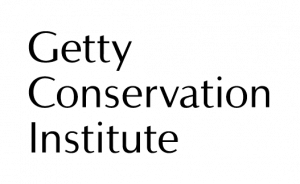Old Cities, New Challenges 2024
A Course for Urban Conservation in Southeast Asia
Overview
As the world becomes more urban, cities are facing increasing urban development challenges and city leaders and professionals are recognising that in a world of greater homogeneity, cities need to compete with each other to attract talent and for investment. Cultural heritage has been identified as one key aspect in making a city unique for talent and investors. As such, city governments and private developers are looking to unlock the potential of their heritage assets, and identify how they might help achieve the United Nation’s Sustainable Development Goals.
Old Cities New Challenges 2024 is the third in a series of courses for urban conservation in Southeast Asia that is aimed at planners, architects, and associated urban conservation professionals working with urban heritage assets. This impact-driven course was created to provide participants a fuller understanding of conservation methodologies and practical, effective tools and techniques for the conservation of historic places in urban contexts while contributing to the career development path of the participants.
Course Duration
8 weeks ( 22 April – 17 June, 2024)
Course Content
The course will be delivered online and will be highly interactive. Formal presentations will be complemented by live tutorials and feature group discussions during which participants will develop their knowledge and skills through exercises using a defined heritage site. We will follow the Historic Urban Landscape approach, which emphasizes a values-based approach to heritage conservation. Participants will share their experiences regarding heritage conservation challenges in their respective cities.
Topics to be addressed include:
- Examination of international approaches, including Historic Urban Landscape (HUL)
- Documentation of tangible and intangible heritage assets, including cultural mapping
- Defining cultural significance of historic places, resulting in a statement of significance
- Heritage economics, related to cultural capital and sustainability
- The adaptation of the Sustainable Development Goals into heritage conservation planning
- Infill development in historic areas
- Goals, strategies and components of an urban conservation plan, resulting in participants’ drafting a plan for a specific site
FORMAT
This course is offered entirely as a eight-week remote-learning experience using the Brightspace learning platform, with a one-week break between weeks four and five. Participants will attend live 90-minute sessions once a week with instructors.
After these live sessions, short pre-recorded presentations will be available for participants for independent learning until the next week’s session.
There will be no live sessions the week of May 19.
ELIGIBILITY
The course is restricted to thirty mid-career urban planners, architects and associated urban conservation professionals living or working in one of the ten countries in the ASEAN network.
Instructors
Course Director
Caroline Cheong, Cultural heritage and economic development planner
FACULTY

David Logan
David Logan, is a Director of GML Heritage, one of Australia’s largest heritage consulting practices. David is an architect and urban planner with more than 35 years’ experience in heritage management in both the public and private sectors including as a trainer and facilitator. He has led heritage teams on a wide range of CBD development and urban renewal projects across Australia and currently also serves on several heritage, design and planning approval panels.
Overseas work has included World Heritage monitoring, missions and advice for ICOMOS, UNESCO and the World Heritage Committee, teaching and workshop facilitation for the Getty Conservation Institute and various other training and lecturing roles. David is a Vice-President of the ICOMOS International Scientific Committee on Historic Towns and Villages (CIVVIH) and recently helped to establish an Asia-Pacific Subcommittee of CIVVIH to address heritage conservation issues facing historic cities, urban areas, towns and villages in the region. He is former Vice-President of Australia ICOMOS, a role which also involved him in drafting revisions to the Burra Charter.

Donovan Rypkema
Donovan Rypkema is president of Heritage Strategies International and principal of PlaceEconomics. Working at the nexus of heritage conservation and economic development, Rypkema has undertaken assignments in more than 50 countries.
Clients of HSI have included the World Bank, the European Development Bank, the Inter-American Development Bank, the Council of Europe, and UNDP. Rypkema serves on the Board of Directors of Global Urban Development, a member of the ICOMOS International Scientific Committee on the Economics of Conservation, Real Estate Market Advisory Committee of the UN Economic Commission for Europe, and the Advisory Board of Doh Eain, a heritage-focused NGO based in Yangon.
Rypkema holds a Master’s degree in Historic Preservation from Columbia University. He teaches a graduate course in preservation economics at the University of Pennsylvania where he received the Perkins Award for Distinguished Teaching. He is the author of The Economics of Historic Preservation: A Community Leader’s Guide, which has been translated into Russian, Korean, and Georgian and the Feasibility Assessment Manual for Historic Buildings. In 2012 Rypkema received the Crowninshield Award from the National Trust, the highest preservation honor and awarded for lifetime contribution to historic preservation in the United States.

Elizabeth Vines
Elizabeth Vines is a conservation architect, and past President of Australia ICOMOS (2012 – 2015). She is passionate about heritage conservation and has worked throughout Australia and Asia on many different projects. In 2016 she was a Getty Scholar for 3 months in Los Angeles researching Creative Heritage Cities and in 2015 spent 2 months in Myanmar on an EU Conservation Project. She regularly consults to UNESCO, the Getty Conservation Institute and other agencies in Asia on conservation issues.
Liz has written 3 books about design in heritage places– Streetwise (1996), Streetwise Asia (2006) and Streetwise Design (2018–resulting from her research at the Getty). In addition, her book Broken Hill–A Guide to the Silver City(2008) is now in its second printing. She is a partner in the firm McDougall & Vines (based in Adelaide) and travels the globe regularly to keep up with the latest in heritage conservation practice! She was awarded an Order of Australia Medal in 2009 for services to heritage conservation.

Janet Pillai
Janet Pillai served as an associate professor at the Department of Performing Arts in University Sains Malaysia (until 2013). She is currently working as an independent consultant and Resource Person advocating for community engagement and cultural sustainability. Her field of specialization includes cultural mapping and participatory planning. Janet works on community-engaged projects in partnership or consultation with community, local agencies, institutions, and professionals.
She has led several Mapping Projects; myBalikpulau (2009), Campbell Street Market (2010 and 2016), Chowrasta Market (2011), Jeti Lama Market Butterworth (2016) and Pulau Tikus Market (2017). Janet has authored 3 books and numerous articles on arts and culture education and sustainability. She also contributes as an expert resource person in regional organisations.

Professor Laurence Loh
Professor Loh is recognized as a leading conservation architect and cultural heritage expert in Malaysia and the Asia-Pacific region. His architectural practice of 35 years consistently delivers highly commended projects related to new-built designs as well as building conservation and planning. He lectures annually at the University of Hong Kong on Conservation Management. He was the ICOMOS site evaluator for the World Heritage Sites of Macau and Kaiping in China and has served on numerous UNESCO missions.
From 2012 to-date, he worked closely with the Getty Conservation Institute to create and deliver an Urban Conservation Planning course for Malaysian/SEA planners. He is a director of Think City Sdn Bhd, a company responsible for the dispersal of financial grants to catalyse neighbourhood regeneration and to facilitate cultural mapping in the World Heritage Site of George Town, Penang, and in 3 other Malaysian states. He is a Fellow of the Hong Kong Institute of Architectural Conservationists, a Jury Member of the UNESCO Asia-Pacific Heritage Awards, a Member of URA Singapore Architectural Heritage Awards Assessment Committee and a past President of The Heritage of Malaysia Trust.

Sara Lardinois
Sara Lardinois is a project specialist in the Buildings and Sites department at the Getty Conservation Institute in Los Angeles. Ms. Lardinois manages the Salk Institute conservation project, part of the GCI’s Conserving Modern Architecture Initiative, and the Contemporary Architecture in the Historic Environment project. She also works on conservation projects for Valley of the Queens and Tomb of Tutankhamen in Egypt, mosaics in the Mediterranean region, and earthen buildings in Peru. A licensed California architect and LEED AP, she holds an architecture degree from the University of Notre Dame and received additional training at the International Centre for the Study of the Preservation and Restoration of Cultural Property (ICCROM) in Rome.
Prior to joining the Getty, she worked as an architect in private practice in San Francisco for 15 years, with much of her work located in the US National Parks, and also consulted on conservation projects in Turkey, Egypt and Yemen.
ADMISSION & FEES
FEES
- For those selected, a course fee of US $500 is due to Think City.
APPLICATION
- Acceptance into the course is competitive. Applicants must submit an online application available on the Think City website.
- Accepting applications now for round two. Very limited places still available. Applications will close when course is filled.
SELECTION
- Participants will be notified within 14 days of their submission. After which they will be given instructions on selecting a target site within their home city and how to prepare for the course.
QUESTIONS
- For questions, please contact OCNC@getty.edu



